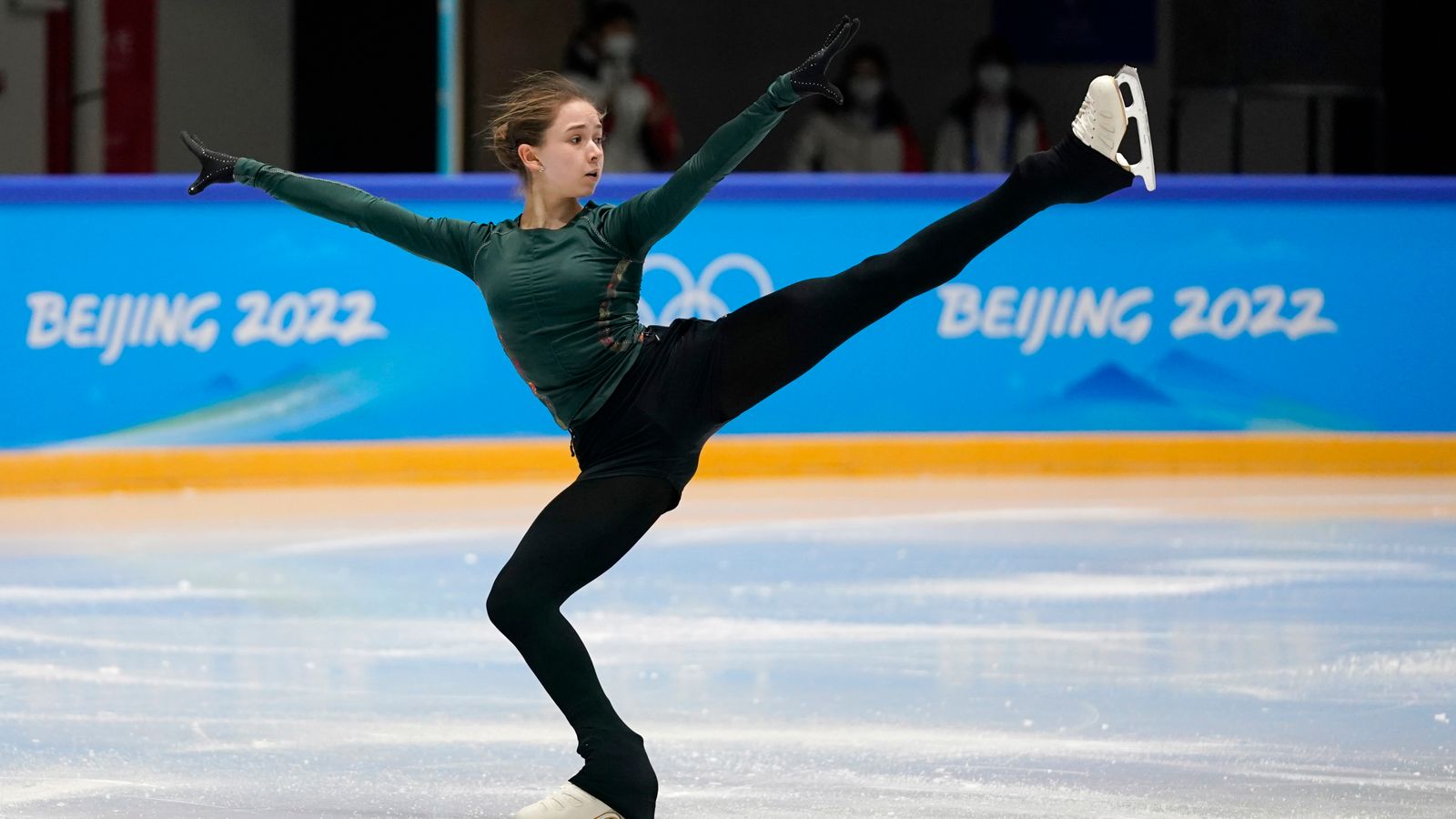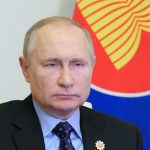Russian superstar figure skater Kamila Valieva has turned up for training as usual at the Beijing Olympics – amid reports the 15-year-old has tested positive for a banned substance.
A medal ceremony for Russia’s recent team figure skating gold win – where Valieva hit two quad jumps – has subsequently been suspended.
Russian newspaper RBC reported that Valieva tested positive for trimetazidine, a banned heart medication, before the Beijing Games.
It is the first big doping case at the Beijing Olympics that involves one of its favourite young stars.
Age is a factor
Matters have been made more complex due to Valieva’s age, which can give her extra protection.
The World Anti-Doping Code classes minors as a “person who has not reached the age of 18 years” – and the question of identifying them “shall be proportionate to the facts and circumstances of the case”.
Winter Olympics: Still hopes for Team GB success in Beijing – but lack of medals shows these are still minority sports
Winter Olympics 2022: Freestyle skier Eileen Gu causes controversy by competing for China despite being born in US
Peng Shuai: Chinese tennis star may have been pressured in interview, L’Equipe journalist says
It could mean that the circumstances of Valieva’s case will focus on the advice and decisions of her team officials and coaches.
On Wednesday, IOC spokesman Mark Adams said that “legal consultation” was required between the Olympic committee and the International Skating Union.
He refrained from revealing further details – but confirmed that “athletes that have won medals” are involved.
Practice as usual
Valieva – who became the first woman to land a quadruple jump in the Olympic competition – practised as usual on Thursday morning and skated with teammate Alexandra Trusova.
She was also seen getting tips from coach Eteri Tutberidze at the practice rink and even flashed a smile to another one of her coaches near the end of the half-an-hour session.
None of the skaters at practice took questions from reporters.
Trimetazidine is a fatty acid oxidation inhibitor used to prevent and treat the symptoms of angina, or chest pain due to a lack of blood supply and oxygen to the heart.
Sometimes referred to as TMZ, the drug is banned by the World Anti-Doping Agency.
Trimetazidine makes the heart better at pumping blood to the rest of the body; it makes the heart muscle “optimally functional”. Increased blood flow delivers more oxygen to the body’s muscles, which helps them perform better — a clear benefit to athletes.
It is also used to treat the symptoms of vertigo – a spinning sensation.
And it can help treat tinnitus and reduced vision and blurred vision due to problems affecting the blood vessels.
The angina drug has garnered media attention recently in connection to the 2022 Winter Olympics, but it has been on the radar of anti-doping authorities for years.
In 2014, the Olympic gold medallist, Chinese swimmer Sun Yang, tested positive for the Trimetazidine. However, the athlete’s doctor said he had prescribed the drug since 2008 to treat the swimmer’s heart palpitations and dizziness.
Her attendance at training implies that the federation is not accepting any finding that would eliminate her – and it is unclear if Russia is appealing or fighting the result.
“She is not suspended,” Russian figure skating federation spokeswoman Olga Ermolina said, providing no further detail.
The first sign of a problem with the results of the three-day team competition came when the medal ceremony was postponed indefinitely after Russia won gold, the US silver, and Japan bronze.
Positive test could be detrimental for Russian team
Russia could lose its gold medal from the team competition due to a positive test, and it could also threaten Valieva’s chance of winning the individual competition that begins on Tuesday.
The US team would be elevated to the gold medal for the first time in the event if Russia is disqualified, and Japan would be awarded silver. Fourth-place finisher Canada would receive the bronze medal.
The sample was reportedly obtained in December, when the teenager was still in Russia.
It reportedly did not come to light until after she had helped her team win the gold medal with her dynamic performances on Sunday.
It is also unclear whether the Russian star applied for a therapeutic use exemption or has a history of heart problems.
Reporters asked the Kremlin about the reported doping issue.
“Let’s, for the sake of understanding, wait for some explanations either from our sports officials or from the IOC,” Kremlin spokesman Dmitry Peskov said.
Traditional doping is uncommon in figure skating since more muscle mass is seen as a negative. However, many skaters have been caught trying to control their weight with diuretics over the years, which are banned for their ability to mask steroid use and other medications that could affect performance.






















